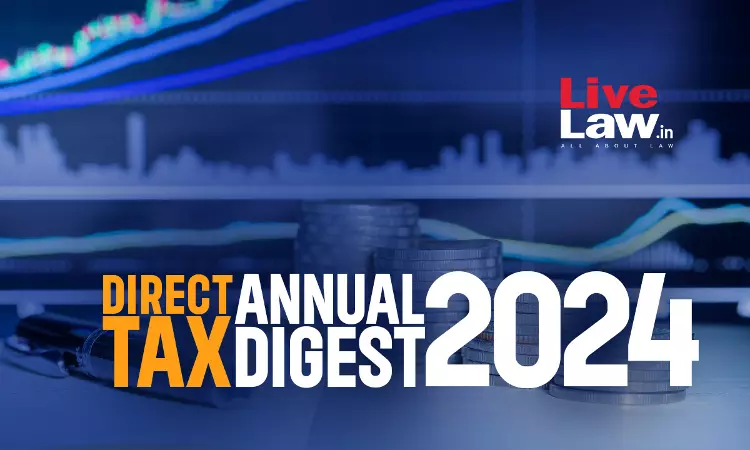Direct Tax Annual Digest 2024: Part II
Pankaj Bajpai
8 Feb 2025 11:35 AM IST
Cash-In-Hand Out Of Business Profits Declared In Return U/s 44AD, Can't Be Plainly Added As Unexplained Money: Delhi ITATWhile allowing the appeal against the addition on account of unexplained money, the New Delhi ITAT held that if the assessee's contention is that it had turnover exceeding the limit u/s 44AD of the Income Tax Act, then CIT(A) ought to have acted in accordance with law....
Next Story



